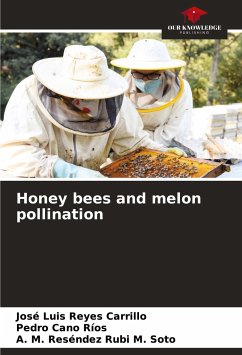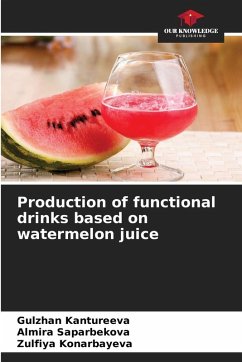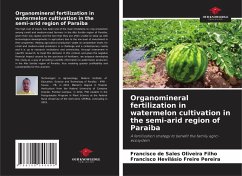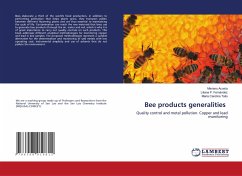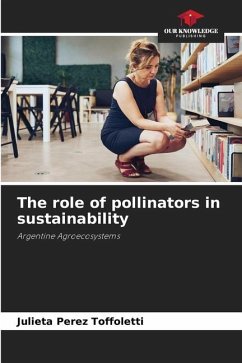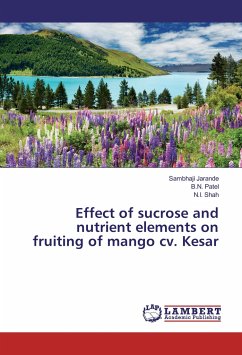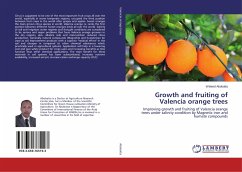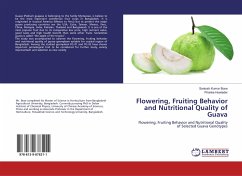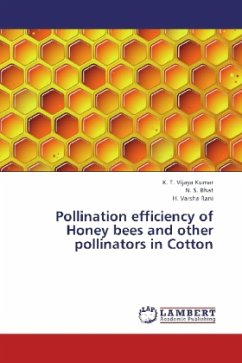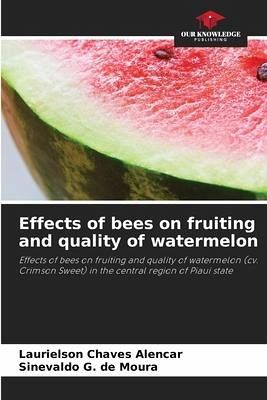
Effects of bees on fruiting and quality of watermelon
Effects of bees on fruiting and quality of watermelon (cv. Crimson Sweet) in the central region of Piauí state
Versandkostenfrei!
Versandfertig in 6-10 Tagen
27,99 €
inkl. MwSt.

PAYBACK Punkte
14 °P sammeln!
The watermelon crop, Citrullus lanatus (Thunb.) Matsumura and Nakai, is one of the main export crops in the world, with an estimated market of more than 1.7 million tons per year and a production of 89 153 514 tons in 2011. Over the past few decades, agriculture has undergone an intense technological revolution aimed at improving crop productivity, with advances covering several areas, however, these advances have not contributed to a considerable increase in watermelon productivity, which is considered low (21.5 tons/ha) when compared to major producing countries. The productivity of the crop...
The watermelon crop, Citrullus lanatus (Thunb.) Matsumura and Nakai, is one of the main export crops in the world, with an estimated market of more than 1.7 million tons per year and a production of 89 153 514 tons in 2011. Over the past few decades, agriculture has undergone an intense technological revolution aimed at improving crop productivity, with advances covering several areas, however, these advances have not contributed to a considerable increase in watermelon productivity, which is considered low (21.5 tons/ha) when compared to major producing countries. The productivity of the crop depends directly on the efficiency of pollination, which in a natural condition is done by bees-estimated at $153 billion per year worldwide. Thus, it is necessary to conduct studies on pollinating agents, especially bees, since it is estimated that 73% of pollination of cultivated plant species worldwide. In this sense, the present work aimed to evaluate the effects of Africanized (Apis mellifera L.) and Irapuá (Trigona spinipes fabr.) bees.



